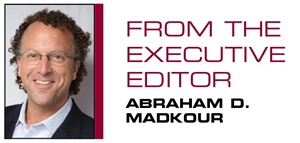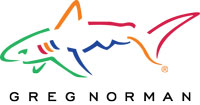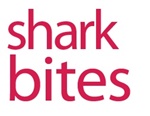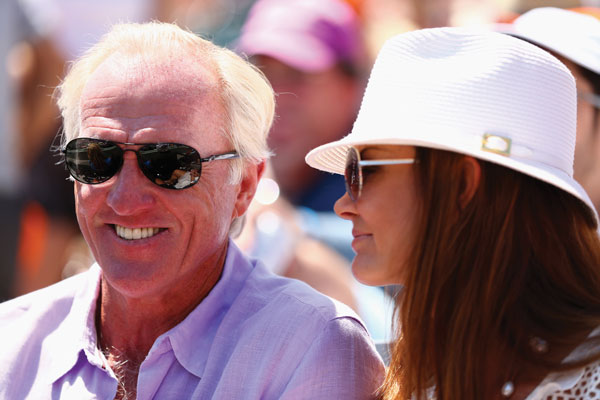 |
Greg Norman, now an avid tennis player, takes in the Miami Open with his wife, Kirsten Kutner.
Photo by: GETTY IMAGES
|
Greg Norman was sitting in his office, checking email on his laptop when he stood up off his exercise ball and greeted me in his Florida home.
The first thing one notices is how fit the 60-year-old is — incredibly lean, broad shoulders and fit waist — and Norman concedes he feels in the best shape of his life.
Dressed in a blue golf shirt with his trademark Great White Shark logo, khaki shorts and sporting brown sandals, Norman with his trademark easy smile gives off a cool, enthusiastic demeanor. He offers me bottled water, explains photos and mementos in his office and suggests we sit on facing couches in his office overlooking the Intracoastal Waterway.
Over the next two hours, Norman rolls through stories on his life, his businesses and beliefs. He exudes honesty, balanced by humility, and is clearly in a peaceful, comfortable part in life, fully cognizant of how lucky he is.
Norman was easily among the most charismatic and compelling athletes of my generation. I followed his career very closely, celebrated his victories and felt the pain of his losses. I loved his swagger, his style, his “attack life” mentality and his off-the-course endeavors. I wear plenty of apparel from his Greg Norman Collection and have drunk my share of Greg Norman Estates wine.
So, I was as excited and prepared for this interview as any I could remember, and I left my hotel for his Hobe Sound home with plenty of time to spare. Driving up to his home, I saw a yellow Lab lying down on the front porch, and after being introduced to sweet Crown and warmly welcomed by the Shark, I was at ease.
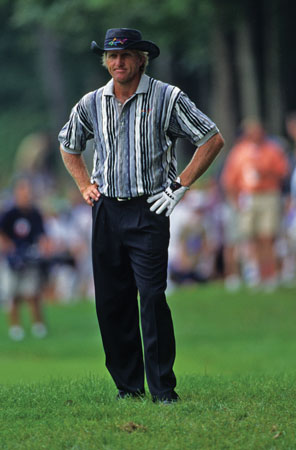 |
Norman’s swagger and style made him a favorite.
Photo by: GETTY IMAGES
|
During the visit, I kept myself in check and refrained from constantly asking about an amazing career that saw him start playing golf at 15 and resulted in him sitting atop the PGA Tour rankings for an amazing 331 weeks. I didn’t relive the moments, wins and especially losses, that I felt a part of, or ask if he could have won more or if he failed in certain situations. But during our time together, he answered many of those questions for me.
Asked about his greatest weakness, he didn’t skip a beat.
“I was very stubborn,” he said. “I was set in my ways. My weaknesses were exposed as a player because I didn’t have great advice as a young kid. In my era, you didn’t have the sports psychologists, the trainers, the nutritionists. Neither did Jack Nicklaus or Arnold Palmer, but they were based in the U.S. and had a support team.”
Norman pauses, takes a sip of water and edges forward off the couch toward me.
“I left my home country at age of 21, so I was always a bohemian. My journey through life was something I had to learn myself, so I assumed a lot of responsibility. Probably in an ignorant way. As I went along, I made these adjustments that I saw were necessary for myself. Now, I’m not saying that they were right. I just injected them into my life because I felt that was the only way I could get there. If I had good advice at the age of 20, 21, 22 … .”
Norman’s street smarts aided his life’s journey and led to his success.
“I’m not a college graduate. I got through high school, but I believe my experiences in life, in sport, now in business, [have] been based in relationships and people I know around the world. Those relationships are probably the most valuable thing that I could ever have. So out of pure ignorance, what has come out of the other end has been pretty good.”
Norman’s business acumen has set him apart from his contemporaries, and many of today’s athletes strive to match his business success and model. His Great White Shark Enterprises has 20 fully or partially owned divisions, and from his clothing line to wine to golf course development, Norman has focused on building his brand equity, believing no one was better positioned to do that.
Greg’s Best Friends
Greg Norman loves Labrador retrievers and beer, and combines his love for both. Crown slept by Greg’s feet during our interview, and the yellow Lab is one of seven that Norman has had over the years, and all have been named after some of Norman’s favorite beers.
He’s had Crown (Crown Lager), two Fosters (Foster’s Lager), Sierra (Sierra Nevada), Rocky (Rolling Rock), Miller (Miller Lite) and VB (Victoria Bitter).
“Nobody is going to build equity in your brand when they’re looking for equity in their brand,” he said. “No corporation — Nike, Reebok, Under Armour — is going to put somebody else’s logo above their logo to become more successful than them. That swoosh is always going to be bigger than anything else. Sure, you get royalties, but you’re never really going to be building your brand in perpetuity. That’s what I wanted to do with Great White Shark Enterprises. I wanted to create a company from my experiences, my patch quilt of understanding marketing, understanding what a brand represents, understand what a living brand is all about. Most importantly, I wanted to do that on a global front, because I was a global player. I knew what my end goals were going to be.”
While he may have known his end goals, getting there wasn’t easy.
“It was a huge learning curve for me,” he acknowledges about starting his business in 1993 after he left IMG. “I was never educated or knew how to do this, I just believed in myself. When I made this big decision to go out and start up my own company, I had to do my own payroll, I had to find headquarters, I had to build a staff, do all of it. But, all of a sudden, it starts moving out, and moving out, and moving out. My revenue increased because I wasn’t with a management company. Corporations began seeing the long-term vision, because I was a single entity, trying to develop and grow equity in my brand. And they loved that long-term ride. It wasn’t a two-year or three-year contract.”
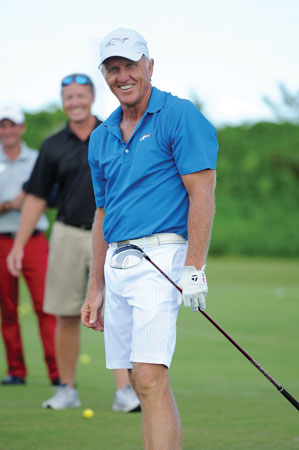 |
Norman wishes he could have experienced social media as a player in his prime.
Photo by: GETTY IMAGES
|
Sports is littered with players who have tried to follow Norman’s path, but none have reached the recognition that Norman has through his simple yet authentic shark logo that was licensed by Reebok in 1991. And fewer have seen the business results.
“I don’t think some of the players realize how much work you have to put into it. If you’re going to have your name on the door, you better be in, boots and all. You got to surround yourself with super-smart people. You have to have a massive commitment to the long term. It’s not five years or 10 years. It’s a generation. I had a corporate retreat out of my ranch in Colorado a while ago, and I gave them my 12-year horizon, and my 200-year horizon. They looked at me like I was an idiot. ‘200 years? Why would you go out 200 years?’ I said, ‘Why wouldn’t I? If I want to build equity in my brand in perpetuity, I want it to be able to survive my mortality.’ They all looked at me and figured, ‘That’s pretty good. If I’m in, my kids’ kids may be able to work for this company because it’s got that big a vision going forward.’ It’s very hard enough for people to wrap their heads around a 12-year plan, let alone a 200-year plan. But I believe I can instill a belief in my executives, staff and partners that, ‘Man, we’re on a long-term ride here which is going to be great.’ I think my company is only about 20 percent of where it is. I think there’s 80 percent to go.”
 |
Norman was once called the most photogenic golfer ever to walk a course. He was must-see TV for me growing up, with his trademark bravado, good looks, colorful golf wear and straw hat.
I conceded that I missed those days, and wondered if he missed the game or wished he played more toward the end of his career. Norman again conveyed a comfortable confidence with his decision.
“I didn’t want to be a ceremonial golfer,” he said with a smile. “I still don’t. That’s why I never played on the senior tour because my priorities shifted. It was a quantum shift and a huge commitment to say, ‘I get it. It’s time.’ I never said I ‘retired’ [in 2003, at age 48, when he began to play golf less and focus more on business]. I refused to say it because you never retire from the game of golf. The game of golf is in your blood. I retired from the physical side of playing golf, but I still play golf. I never wanted to publicly make that announcement because I see athletes retire and the next thing you know, they’re on the senior tour or somewhere else. I didn’t want to be a hypocrite, I suppose. At the same time, I wanted to focus on the growth and the structure of my company.”
Norman launches fund
Greg Norman the business executive rarely slows, and he brims with excitement when discussing his new $75 million Great White Shark Opportunity Fund he started with partner David Chessler to invest in small businesses.
“We’re getting phenomenal returns,” he said. “We’re getting returns in the lows 20s, low 30s. We are investing in companies across the board, but I’m really liking technology-based companies. This is something I never even considered being in 10 years ago, five years ago — never even contemplated. But now, all of a sudden, you sit down and can meet with the Guggenheims and the Wells Fargos of the world and you go, ‘I’m not a $35 billion fund, but I’m going to try and get there.’”
But don’t believe Norman is as aggressive in his investments as he was during his go-for-broke days on the tour.
“I’m much more conservative in business than I was in golf,” he said. “Absolutely. In golf, you had to assess the shot, get the yardage and you had to execute in 15 seconds. Sometimes you take a really aggressive approach and it works. OK, on to the next tee. In business, I’m more flat-lined. I don’t do that big. I’m not going to invest and shoot for a 1,000 percent return. I’m not into that. We get enticed all the time in these VC opportunities and I just don’t believe in that. I think long term; getting really good, consistent returns on a regular basis no matter what the state of the union is, is what your investors are looking for.”
“Do I enjoy doing business more than I do playing golf? The reward is equally as great, but totally different. My reward in golf was I was under a very public microscope. People saw that I wore my heart on my sleeve, and people appreciated my victories, but also appreciated some of my losses. I always had critics and always had a great fan base. In the business world, it’s private — I make mistakes in business, but they are private and nobody sees or reads about them. But at times, I feel I can do more for the game of golf now that I’m in business than I did playing the game.”
Norman’s believes he can truly help the game when he teams with Joe Buck to lead Fox’s inaugural coverage of the U.S. Open in 3 1/2 weeks. Many have hoped that Fox will bring a nontraditional approach to golf, and that suits Norman just fine. “Being in our sport for way too long, everyone’s stuck in the box,” he said.
He’s been preparing extensively and believes he can offer value to the viewer.
“I understand the game,” he said. “People are looking for your analytical advice. People are looking for your perception of what you’ve experienced in the game and to share it with them. Not everybody out there is an expert, so I’ve got to be broad; I’ve got to be a mile wide in my comments and not so deep. Because if I go too deep, people will go, ‘What’s he talking about?’”
Many wonder if Norman will be outspoken in the mold of NBC Sports’ Johnny Miller, who bristled pros with his biting comments. Look for Norman to bring a more balanced view.
“As a player, you understand there are extenuating circumstances that the TV viewer doesn’t see that may be connected to a poor shot. You can see whether a ball is sitting in a bad lie. A hanging lie or a slope can dictate what a player can or cannot do. You can say, ‘There might have been a circumstance where John Smith didn’t really understand how severe that lie was, or how heavy the wind was above the tree line. His execution of the shot when you look at the swing might have been perfect, but he didn’t anticipate a few other pieces to make sure the shot was perfect.’ Something like that.”
But Norman is very clear about what he won’t tolerate: any player disrespecting the game, event or fans. “Attitude-wise, if I see a player bringing the game in disrepute, you’re getting a slap across the wrist. I have confidence of speaking out if I see something happen, without violating certain codes and ethical standards.”
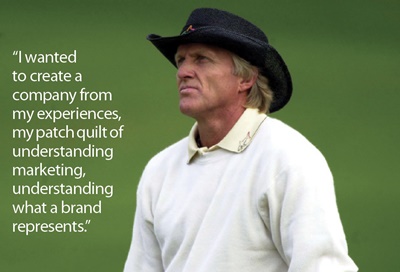 |
Norman believes that, at times, he can do more for the game of golf in business than he did as a player.
Photo by: GETTY IMAGES
|
He offers an example of when Tiger Woods took an illegal drop at the Masters in 2013. “As soon as he dropped the ball, I knew it was an illegal drop. I said to the TV, ‘You can’t do that! That’s not right.’” I absolutely would have said that on air. I’m there to protect the sport, because I think it is incumbent on me as a former player that I protect the sport and say that no matter how good you are, the sport is always above you.”
Norman is growing more bullish about the future of golf in the U.S., feeling it’s turned a corner.
“It’s bottomed out. The negative closure rate of golf courses will start to trend up. Disposable income will come back. Golf will survive. It will come back.”
But he’s not a fan of some of the new concepts floated to jump-start participation, such as bigger golf holes and shorter courses.
“I’m not a big fan of making bigger holes. People are still going to miss that big hole. There are things we have done successfully as a developer. Instead of an 18-hole course, you do 12. You can play six holes, play 12 or 18 holes. Time is key, so you can say, ‘I can do it in an hour and a half, or I can do it in three hours, or I can do it in five hours if I want to play 18 holes.’ This design won’t work for championship golf courses, but not every golf course is a championship golf course.”
Norman loves the advent of social media in sports and wishes he could have experienced today’s direct communication between athletes and fans as a player in his prime.
“I would have loved it,” he says, almost longingly. “I was an international player, and there was a percentage of negative vibes about me in this country for all the wrong reasons. I felt when I was playing in the ’80s and ’90s, I was judged on other people’s opinion, and people didn’t know who I was. But people could say whatever they wanted. That became a real burden for me. Now, if I had social media, I could extinguish that immediately through my personality. I would tweet out saying, ‘I wasn’t like that. This is what really happened.’ I would have been on Twitter immediately. I engaged people when I played golf. I’d go off into the gallery, if somebody didn’t like me, I challenged them.”
Norman credits his son, Gregory, for turning him on to social platforms and he currently has more than 73,000 followers on Twitter (@SharkGregNorman).
Greg Norman unplugged:
Views of the shark
“I’m a big fan of [PGA Tour Deputy Commissioner] Jay Monahan. I really am. He’s really got a good head on his shoulders. While I think Tim Finchem had more of a lobbyist model, I think Jay Monahan is more coming from the business end.”
“America is a phenomenally resilient country. Since I’ve been here, I’ve probably been through four or five recessions. As a player, I was recession-proof. Sports men and women are recession-proof at the peak of their career because they still get paid for performing.”
“Our golf course design business is doing very well in pockets of the world. We signed three jobs in China. Vietnam is really good for us. Australia is still red hot for us. Mexico is really good for us. The Middle East is coming back a little bit. The market that will really probably take off will be Japan with redos.”
“If golf in China does develop in 25 years, you will get one of the top players in the world coming out of China, because they will put a structure in place from the grassroots that allows a percentage of the 1.3 billion people to create something pretty special and a top player will come out of it, male or female.”
“If someone is your enemy in business, you got to understand why. Why do they want to get our market share? Why do they think we’re bad and badmouth us because we do a good job? It’s a compliment in a lot of ways when people become your enemy because they may be envious of where you’re taking yourself and how you’ve done it.”
“I sat on a friendly board once where everybody just thought the chairman was great. I would never want a friendly board. If I’m chairman, I want someone to say, ‘Greg, that’s probably not the best thing to do. Why don’t you think about doing it this way?’”
“It’s amazing. When I had the chainsaw accident [in 2014], my Facebook page gained more than 2 1/2 million followers. My Instagram account almost tripled. Today, I have no problem taking a photograph of some place I might be in the world because not everybody gets a chance to experience it. It’s amazing how many people appreciate saying, ‘Thank you for including us on that.’”
I have stayed more than two hours and know Norman has to be at a public appearance shortly. I wanted to ask him about his agonies at Augusta: the ’87 Masters against Larry Mize and the heartbreaking ’96 Masters fold against Nick Faldo and even the ’99 Masters when he had a one-shot lead after an amazing eagle on 13. There were the brutal losses at the U.S. Open, in ’86 after he led after three-rounds, and in ’95, where he led for practically the entire event before falling to Corey Pavin. There was also, of course, his amazing run during the ’08 British Open, when he went into the final day leading by two strokes, on the cusp of winning another major at the age of 53 when his body just wore out on the back nine. Through all that, there must have been one major loss that hurt or one shot he wished he could do over.
He doesn’t hesitate — his second shot that led to a bogey on the 18th hole at the ’86 Masters, when a birdie would have given him his first major.
“The second shot into the 18th at the Masters when Jack [Nicklaus] beat me in ’86 by one. It’s the only shot that I actually didn’t play aggressive all day. Jack played a phenomenal back-nine. Shot a 30. But on the back, I get four straight birdies. I was very aggressive from 13 on and hit a great drive down 18. But I decided to feather in a four iron instead of hammering a five iron like I should have. It’s a big uphill lie and I just didn’t get my right side going into the ball fast enough to counteract gravity. You could feel it, and there was no chance I could play catch up. So that would be it.”
Norman’s honesty gives off a vibe of a person happy, healthy, at peace and appreciative of the luck and experiences encountered along the way.
“I never knew when I was making $32 a week when I was 21 years old working in a golf club in Australia that I’d be in a position where I am today. It’s been an incredible journey.”
Working with his wife and two children, he fully realizes his good fortune.
Norman to parents: Support, don’t coach
Greg Norman is involved in youth golf and, as he’s taken up more and more tennis, actively plays with young developing players in Florida.
But he cringes at what he sees from parents who take an aggressive role in their child’s sports development.
“I tell the parents to keep away from them competitively,” he said. “They micromanage too much. They have no experience in what the professional world is all about. They don’t even understand the physicality of the sport, let alone the mentality of it. They don’t understand the sacrifices that are needed, the commitment that’s needed because they’ve never had any experience of that. So stay out.
“Be supportive, be there for them. When they get knocked down, be mom and dad and put your arm around them and let them cry on your shoulders. But don’t be a mom and dad thinking you are a coach, or a teacher or anything like that because you don’t have a clue how difficult professional sport is.”
“I’m getting a great sense of satisfaction having my daughter and my son working for me now,” he said, beaming. “My daughter, Morgan, and her husband live across the river. My son, Gregory, just bought a house on the river here. It’s a very cool experience, as a parent. Actually, it’s more than a really cool experience, to be a parent and give your children an opportunity to go down a path that you have plowed before them. It’s the most rewarding thing in life. Like I said, the 200-year plan is for my family. My wife is a great interior designer and she’s started her own business and we tucked it under mine. It really is a game-changer in life when you can give other people an opportunity to be successful in whatever realm they want.”
Norman and I finish up. He walks me through a hallway full of trophies and we get a few photos, one that is photo-bombed by Crown. I finally come clean and tell him how much I’ve admired him through the years — as an athlete, businessman and person.
“I’ve been lucky in life,” he says appreciatively and humbly. “I was lucky with my arm recently. I’m lucky because I could hit a golf ball from point A to point B better than most. That gave me an opportunity to learn a lot, to do a lot, to establish a lot, and then and now, to give a lot. It’s amazing how it just all gels together. At the end of the day, do I feel a sense of pride and self-gratification because I did it on my own? Damn right I do.”
He offers his hand and his familiar, charismatic smile, and I watch the Shark walk back in his house, on to the next adventure in his amazing journey.
Abraham D. Madkour can be reached at amadkour@sportsbusinessjournal.com.



